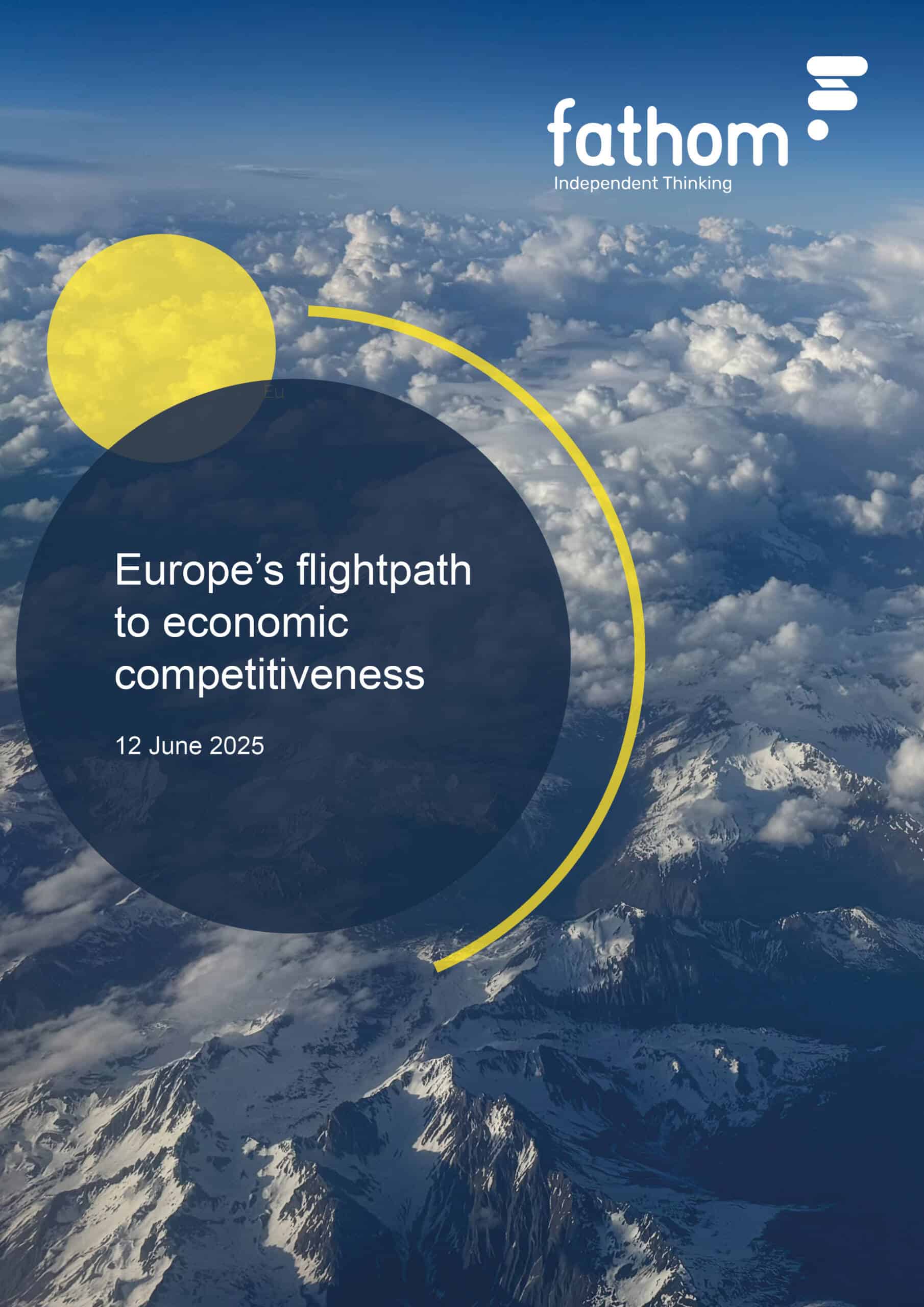Europe’s flightpath to economic competitiveness
How Europe can protect and enhance its position as an aerospace leader
Fathom’s new study provides the first detailed economic comparison of Europe’s options to decarbonise air travel – set against a backdrop of global geopolitical uncertainty and the EU’s ambition to enhance economic competitiveness.
The aerospace sector is crucial to Europe’s economy but, as one of the hardest sectors to decarbonise, it faces an uncertain future. Fathom was commissioned by the European Climate Foundation (ECF) to assess how Europe can protect and enhance its leadership position in aerospace as the sector decarbonises, while at the same time achieving its broader economic and political goals.
Fathom’s work finds that hydrogen-powered aircraft represent a once-in-a-generation industrial opportunity for Europe. With the United States retreating from climate funding under a second Trump administration, there are significant economic gains on offer if Europe is able to take the global lead in clean aviation. But with China rapidly advancing its position in clean technologies the window of opportunity will not remain open for long, and will require European policymakers to switch course from their narrow focus on biofuels and allocate significant funds to hydrogen research and development.
The report, Europe’s flightpath to economic competitiveness, was released on 12 June 2025.
As part of our work on this project we have built Fathom’s Aviation Decarbonisation Model which shows how the costs of different decarbonisation technologies move in different scenarios. (see postcard below.)
Read more about the project
Report in the news
Meet the team

Erik Britton
Managing Director & CEO

Brian Davidson
Head of Energy & Climate

Vijay Krishnan
Economist

Leara Gabay
Marketing & Events Manager

Niamh Birkett
Marketing Assistant
Fathom is a world-leading consultancy specialising in the global economy, geopolitics and financial markets. One of our core focuses is climate-related research. We provide clear analysis and advice on the energy transition, and the economics of climate change, to assist policymakers, strategists and investors.
The European Climate Foundation (ECF) is a major philanthropic initiative working to help tackle the climate crisis by fostering the transition to a net-zero emission society at the national, European and global level. It supports over 700 partner organisations to carry out activities that drive urgent and ambitious policy in support of the objectives of the Paris Agreement, contribute to the public debate on climate action and help deliver a socially responsible transition to a net-zero economy and sustainable society in Europe and around the world.
Read the report
To read this report, please fill out the form below.



